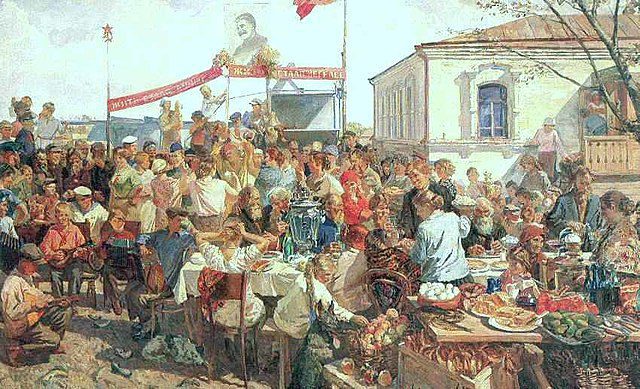The Freelance Life, the Socialist Fantasy, and in Praise of German Humor

This piece in The New Republic is a bit of a mess. Jacob Silverman writes about how impossible it is to make a living doing freelance journalism, the “indignities that no worker should have to go through” (what those are other than not being paid very much are unclear), and how angry he is that editors are not showing enough interest in advancing his career: “In terms of SEO, I am by far the most successful Jacob Silverman. But I would like to make a living. I am tired of making $20,000 a year. I am sick of editors telling me, ‘You should pitch me sometime,’ without offering anything more.” Complaints against the “gig economy” aside (a bogeyman word in my view), writing has always been difficult work. It has almost always been part-time work, and holding up the golden years of the twentieth century when it wasn’t for many writers, as if those years weren’t an anomaly, is a mistake that ends in bitterness, as this piece shows.
The real story behind Harper Lee’s lost true crime book: “Nearly 20 years after To Kill a Mockingbird, Harper Lee was living out of the public eye, drinking and suffering from writer’s block. Then she came across the sensational case of a murderous preacher.”
Brian T. Allen praises a “dazzling” show of European fine art at the Park Avenue Armory.
William Voegli reviews Bhaskar Sunkara’s The Socialist Manifesto, in which Sunkara argues that socialism is inherently democratic and our only hope for a flourishing society: “He calls socialism in the past century a ‘false start,’ which hardly suffices to establish that it now deserves a fresh start. Socialists, beginning with Karl Marx, have always told uplifting stories about ordinary people shaping the systems that shape their lives. Sunkara’s new promise of socialist life is indistinguishable from the old promise of socialist life. For example, only ‘proletarian democracy,’ and only ‘methods of persuasion,’ as opposed to coercion, ‘can make it possible to unite the working class, to stimulate its independent activity.’ These were the words of Joseph Stalin in 1921, quoted in another new book, Socialism: The Failed Idea that Never Dies, by Kristian Niemietz of the Institute of Economic Affairs, a libertarian British think tank. ‘A “soviet,” Niemietz points out, ‘was originally simply a democratically elected workers’ council based at a factory, and a Soviet Republic was originally meant to be a semi-direct grassroots democracy, in which these workers’ councils would form the main building blocks.’ A shortage of inspiring visions of the future cannot, then, qualify as socialism’s most serious need. There are more urgent and fundamental difficulties.”
Wilfred M. McClay’s Land of Hope is “no mere textbook” of American history, Bruce P. Frohnen writes. It’s a great story of “powerful characters” and “life-changing events.”
Essay of the Day:
In Standpoint, Giles Macdonogh extols German humor:
“The standard representation of a German joke is an Englishman watching a group of earnest Teutons being told a funny story and asking why they are not laughing. He is informed, ‘They’re waiting for the verb.’ Then there’s the jape performed on an English audience in Jerome K. Jerome’s Three Men in a Boat. The pranksters tell them the mournful dirge they are hearing is the funniest song in the German language and that the Kaiser had had to be carried off to bed he found it so droll. The audience laughs itself silly and wonders why it was so often said Germans had no sense of humour. It turns out to be the saddest song in the German language, which had reduced the Kaiser to tears. The audience departs in embarrassed silence.
“No matter what the language, a lot of humour is lost in translation. German humour tends to be long-winded, like the language; yet another reason why it is hard to translate. I tried out a few simple Count Bobby, Baron Mucki jokes on my son. This one worked: Count Bobby tells an artist: ‘Paint me a picture of Mary Magdalene!’ ‘Before or after the sin?’ ‘During! During!’
“Connoisseurs will appreciate this is a Catholic joke, therefore restricted to Austria and south Germany. The Catholic Rhineland would probably consider itself too sophisticated for this sort of ribaldry. Berliners are famous for their wit, which often has a dryness to match our own.”
Photo: Young monks on a roller coaster
Poem: Floyd Skloot, “Freestone Peaches”
Receive Prufrock in your inbox every weekday morning. Subscribe here.